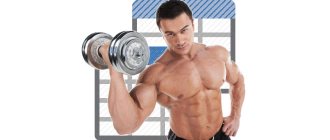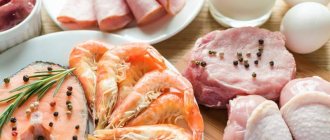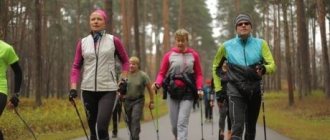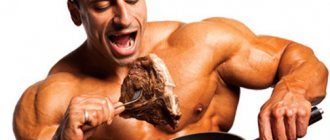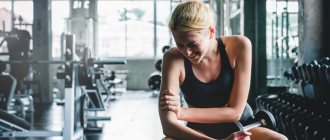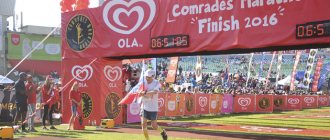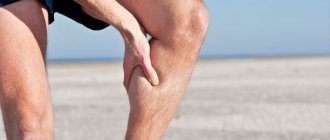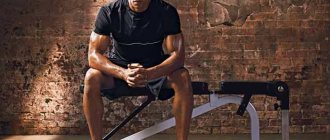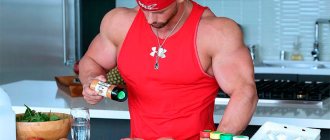2021-01-22 20:37:31 0 261
You train hard, always strive to do better, and want to achieve your goals.
You probably pay more attention to your pre-workout meal than your post-workout meal. But consuming the right nutrients after a workout is just as important as before a workout.
Here's a comprehensive guide to optimal post-workout nutrition.
Eating after a workout is essential
To understand how eating the right foods can help post-workout, it's important to understand how physical activity affects your body.
When you exercise, your muscles use glycogen for energy. This leads to depletion of muscle glycogen stores. Some proteins in the muscles are also broken down and damaged.
After exercise, the body tries to restore glycogen stores and damaged muscle proteins.
Consuming the right nutrients soon after your workout will help your body get the job done faster. After training, it is especially important to eat carbohydrates and protein.
This will help:
- reduce muscle protein breakdown;
- increase synthesis (growth) of muscle protein;
- restore glycogen reserves;
- speed up recovery.
CONCLUSIONS:
The right nutrients will help restore muscle proteins and glycogen stores and promote muscle growth.
How protein foods help muscles after workouts
The KP team continues preparations for the Minsk Half Marathon
Photo: Pavel MARTINCHIK
The Minsk Half Marathon will take place on September 15. Representatives of the Komsomolskaya Pravda in Belarus team will take part in three distances (5 km, 10.5 km, 21 km).
“DO NOT CHASE OTHER PEOPLE’S RESULTS”
Together with our readers, we continue our preparations, this time the master of sports in triathlon (swimming, cycling, running) Valentina Zelenkevich . During the lesson, she paid attention to exercises that strengthen muscles and ligaments, as well as the development of speed and strength qualities. And she gave a lot of valuable advice:
The training was conducted by Master of Sports in triathlon Valentina Zelenkevich.
Photo: Pavel MARTINCHIK
The lesson focused on exercises that strengthen muscles and ligaments.
Photo: Pavel MARTINCHIK
— When we talk about preparing for a half marathon, it is important to consider the timing. You can’t prepare for 21 km in a month. This must be done at least six months in advance. If you haven’t been thoroughly involved in sports before, it will take even more time to lay the foundation. The main thing is not to overdo it, otherwise you can overtrain, get injured and lose incentive. A consistent approach to preparation will help during the race and protect you from injuries. If we are talking about preparing for 21 km, then in a week you need to run about 40 km in total.
Proper exercise will protect you from injury during the race.
Photo: Pavel MARTINCHIK
You can strengthen your muscles and ligaments with daily exercises.
Photo: Pavel MARTINCHIK
I would recommend that beginners and amateurs pay more attention to special running exercises: they develop muscles, strengthen ligaments, contribute to the development of speed and strength qualities and help master the correct running technique.
We develop speed and strength qualities.
Photo: Pavel MARTINCHIK
Valentina Zelenkevich gave a lot of valuable advice for preparing for the Minsk Half Marathon.
Photo: Pavel MARTINCHIK
Having the right running shoes and running gear is also important. Clothes should be light, wick away moisture well and not restrict movement; even socks are important. Sneakers should have good cushioning and support elements for the foot.
It is advisable to have a trainer set the running technique, it will be safer.
Photo: Pavel MARTINCHIK
The KP team and triathlon master of sports Valentina Zelenkevich continue preparing for the Minsk Half Marathon
Photo: Pavel MARTINCHIK
It is advisable to have a trainer set the running technique, it will be safer. Of course, before starting preparation you must undergo a medical examination. Don’t look around and don’t chase other people’s results and volumes. Objectively evaluate your preparedness. If you are running the Minsk Half Marathon for the first time, it is better to choose a shorter distance.
Warming up before and after running will allow you to better prepare your muscles, joints and ligaments for the stress.
Photo: Pavel MARTINCHIK
“PROTEIN IS IMPORTANT FOR BOTH THOSE WHO LOSE WEIGHT AND THOSE WHO BUILD MUSCLE”
Nutritionist Victoria Bolbat told how to build an effective nutrition plan during active sports:
— We need to start from what our goals are: building muscle tissue, maintaining good physical shape, losing weight. Losing weight is the most thankless and difficult task. Physical activity without nutritional control will only provoke an increase in appetite. But if you exercise regularly and track your diet while maintaining a slight caloric deficit, then exercise and a healthy, balanced diet will do much more to achieve your goal than either of those things alone.
Nutritionist Victoria Bolbat.
Photo: Svyatoslav ZORKY
If you are working to increase muscle mass, then it is important to focus on proteins. Unfortunately, this is forgotten not only by young guys who go to a fitness club to pump up, but also by girls who want to lose weight. Healthy weight loss involves maintaining adequate muscle mass. If you start to lose weight by cutting back not only fats and carbohydrates in your diet, but also proteins, then this weight loss occurs primarily due to our body “eating” muscle mass. As a result, this leads to a decrease in metabolism, activity level, and mood. And you can end up in a depressed state, a loss of motivation, and a return to your previous lifestyle. Therefore, it is important to maintain protein nutrition not only for those who want to pump up, but also for those who are losing weight.
— What would you recommend eating before and after training?
— The most important thing is to start training in a state of “not full, not hungry.” This feeling comes one and a half to two hours after the main meal. But in half an hour you can eat something protein-carbohydrate - for example, Teos high-protein yogurt. 40 - 50 minutes after the lesson, especially if there was work on developing strength, the protein-carbohydrate window opens. Moreover, first of all, it is protein. Proteins are absorbed best together with carbohydrates. Therefore, after training, it is important to eat protein so that the muscles are better rebuilt and ready for the next session.
If you are working to increase muscle mass, then it is important to focus on proteins.
Photo: Pavel MARTINCHIK
— Which products are more suitable?
— Protein products are divided into two main classes: animal origin (meat, fish, dairy products, eggs) and plant origin (legumes, cereals, nuts, seeds, mushrooms). All of these foods are important to include in your diet for those who are actively involved in sports, especially if you are building muscle mass. It is important for vegetarians and vegans to include several groups of plant proteins in their diet to ensure they receive a full complement of essential amino acids.
— What is better to combine with foods high in protein?
— We inherited from the mythical theory of separate nutrition a fear of combining proteins and carbohydrates. Fortunately, this theory has no scientifically proven basis. It has long been proven that carbohydrate foods promote the absorption of protein.
Team "KP" and Valentina Zelenkevich.
Photo: Pavel MARTINCHIK
— For those who actively exercise, it is good to have healthy snacks between meals. What's best for this?
— Here it is also important to separate nutrition for those who work to gain muscle mass and for those who want to lose weight. Fractional nutrition is more suitable for building muscles and pumping. If this approach is used by those who want to lose weight, they, on the contrary, will begin to gain weight: dividing the intake of the chosen diet into equal portions at regular intervals will lead to the fact that you will not feel full at any of the meals. As a result, the feeling of hunger will lead to breakdown and overeating. In this case, three main meals containing proteins, fats, and carbohydrates are sufficient. If necessary, you can add protein-carbohydrate snacks (150 - 200 kilocalories each).
How to Eat Effectively Before and After Workout
It is important to get enough protein in both main meals and snacks. This is especially important for those who work for the masses. The protein pool is depleted every 3 to 4 hours. If after three hours there is no protein in the body, then the body begins to use its own protein from the muscles, breaking it down for more important physiological needs. In addition, protein is absorbed no more than 30 - 35 grams at a time.
An ideal option for snacking is dairy products. Yogurt contains not only complete animal protein, but also carbohydrates. Protein has the highest satiating power compared to carbohydrates and fats. And it’s delicious: Teos yogurt is natural, contains a lot of protein (about 20 grams per bottle) and tastes good. Excellent recharge for the body.
Proteins, carbohydrates and fats
In this section, we'll look at how nutrients—protein, carbohydrates, and fat—are involved in the body's recovery process after exercise.
Proteins help repair and build muscle
As stated above, exercise causes muscle protein breakdown. The speed at which this happens depends on the type of exercise and your fitness level. But even in well-trained athletes, muscles are destroyed.
Consuming enough protein after exercise provides the body with the amino acids it needs to repair muscles. It also provides the building blocks needed to build new muscle tissue.
It is recommended to consume 0.14–0.23 grams of protein per pound of body weight (0.3–0.5 g/kg) immediately after exercise.
Research has shown that consuming 20-40 grams of protein maximizes the body's ability to recover from exercise.
Carbohydrates help recovery
Glycogen stores are used as energy during exercise, and consuming carbohydrates after exercise helps replenish them.
The rate at which glycogen reserves are used depends on the activity of the workout. For example, endurance exercise forces your body to use more glycogen than weight training.
For this reason, if you do endurance sports (running, swimming, etc.), you may need more carbohydrates than a bodybuilder.
Consuming 0.5–0.7 grams of carbohydrates per pound (1.1–1.5 g/kg) of body weight within 30 minutes of exercise results in proper restoration of glycogen stores.
In addition, the secretion of insulin, which promotes glycogen synthesis, is better stimulated when carbohydrates and protein are consumed simultaneously. Therefore, eating carbohydrates and protein together can maximize protein and glycogen synthesis.
Try eating them in a 3:1 ratio (carbs to protein). For example, 40 grams of protein and 120 grams of carbohydrates.
Consuming significant amounts of carbohydrates to replenish glycogen stores is most important for people who exercise frequently, such as twice a day. If you have 1-2 days of rest between workouts, this is not so important.
Fats aren't that bad
Many people believe that eating fat after a workout slows down digestion and interferes with nutrient absorption. Although fat may slow down the absorption of food after a workout, it will not reduce its benefits.
For example, research has shown that whole milk is more effective at promoting muscle growth than skim milk.
Moreover, another study showed that high-fat foods do not interfere with glycogen synthesis.
It's a good idea to limit the amount of fat in the food you eat after a workout, but having fat in it won't affect your recovery.
CONCLUSIONS:
A post-workout meal containing both protein and carbohydrates will speed up glycogen storage and muscle protein synthesis. A practical way to achieve this is to consume carbohydrates and proteins in a 3:1 ratio.
What is protein and why is it important?
Protein is a compound made up of chains of smaller molecules known as amino acids and is the basic building block of your body.
Body tissues such as muscles, ligaments, tendons, hair, organs and skin are all made up of proteins, as well as hormones, enzymes and various chemicals necessary for life.
The body requires twenty-one amino acids to form proteins.
He can produce twelve and gets the rest from food. These are known as "essential" amino acids and are:
- Phenylalanine
- Valin
- Threonine
- Tryptophan
- Methionine
- Leucine
- Isoleucine
- Lysine
- Histidine
The main reason to eat protein is to provide your body with essential amino acids to repair and build tissue in your body.
Regular exercise with heavy weights and lighter training increases the body's need for protein, but optimal protein intake is also important for the muscles of a sedentary person.
If such a person does not eat enough protein as he gets older, he will lose muscle faster. And muscle loss leads to death at a younger age.
From a physiological point of view, eating protein does more than just increase the level of amino acids in the blood (namely plasma).
Eating more protein also stimulates protein synthesis , which is the biological process in which amino acids are used to create new proteins.
Muscle proteins are one of many types of proteins that are created by the body, and these proteins are used to repair and increase muscle tissue.
The opposite of synthesis is protein breakdown , which is a biological process in which the body breaks down existing proteins into their constituent amino acids.
Both of these processes occur in the body all the time to varying degrees.
To put this into perspective, muscle growth and muscle loss are the result of the rate of protein synthesis exceeding the rate of protein breakdown, and vice versa.
In other words, when the rate of muscle protein synthesis is higher than the rate of muscle protein breakdown, muscle gain occurs. When this happens, the body is in a state of “positive protein balance.”
When the rate of protein breakdown exceeds the rate of protein synthesis, you lose muscle. When this happens, the body is in a state of “negative protein balance.”
Under normal conditions, these two conditions balance each other, and muscle mass remains unchanged. This is why people who don't exercise don't gain or lose muscle over time. However, in reality, people slowly lose muscle day by day, but it happens at such a low rate that it is difficult to notice.
So, at the core of it all is everything we do to gain muscle quickly - working out in the gym, eating a lot of protein and calories, taking the right supplements, etc. - and it performs one of two functions (or both in some cases):
• Increases the rate of protein synthesis. • Reduces the rate of its decay.
Strength training, for example, increases protein synthesis and therefore increases muscle mass.
Fasting for long periods of time, on the other hand, causes protein breakdown, which explains muscle loss.
When it comes to maximizing muscle growth, the basic principles are proper nutrition, training and recovery. Following them gives most of the results.
You know these things.
- Eat enough protein every day.
- Eat enough calories every day.
- Focus on strength training.
- Exceeding the normal load rate within reason.
- Get enough sleep.
- You need to make sure that you are not training at 100% effort intensity for several months.
At least 80% of muscle growth comes from the above, which means that all the other strategies and tips that could be followed will always be less important.
Less important does not mean useless, which is especially important for a weightlifter who wants to increase his progress.
That's why it's recommended to do more than just stick to the basics, including supplementing with creatine and beta-alanine, focusing on timing protein intake, and keeping cardio to a minimum.
Individually, this won't have much effect, but collectively it can make a lot of progress in the long run.
And this is where the question arises: is there protein before and after workouts?
Post-workout meal timing matters
Your body's ability to restore glycogen and protein increases immediately after exercise. For this reason, it is recommended to consume a combination of carbohydrates and proteins as soon as possible.
While the timing doesn't have to be precise, many experts recommend eating within 45 minutes of your workout. In fact, it is believed that delaying carbohydrate consumption by just two hours can reduce the rate of glycogen synthesis by 50%.
However, if you eat before your workout, it's likely that the benefits of that food will still be present after your workout.
CONCLUSIONS:
After training, you need to eat within 45 minutes. However, this period may be slightly longer if you eat shortly before your workout.
What type of protein is best for pre- and post-workout consumption?
Great, now you know when to eat protein before a workout and whether to eat after it.
What types of protein should you eat before or after workouts? Does it really matter?
Ideally, you should have something that quickly increases plasma amino acid levels and therefore the rate of protein synthesis, and that is rich in the amino acid leucine to directly stimulate muscle growth. You need something from the category of fast proteins after training.
The protein source that best fits the above, and is also the most popular protein supplement in the world, is whey protein.
Whey is quickly absorbed and rich in leucine, so it significantly increases the rate of protein synthesis and can therefore be eaten before and after exercise.
While any type of protein supplement has a stimulating function, we're all for whey protein isolate because it's so close in composition to pure protein and doesn't contain lactose, which can potentially upset your stomach.
Foods to Eat After a Workout
The main purpose of eating after exercise is to provide the body with the necessary nutrients for adequate recovery and maximum benefits from exercise. Choosing foods that are easy to digest will help you absorb nutrients faster.
The following are examples of simple and easily digestible foods:
Carbohydrates:
- Sweet potato;
- Chocolate milk;
- Quinoa;
- Fruits (pineapple, berries, banana, kiwi);
- Rice cakes;
- Rice;
- Oatmeal;
- Potato;
- Pasta;
- Dark leafy greens.
Proteins:
- Protein powder of animal or plant origin;
- Eggs;
- Greek yogurt;
- Cottage cheese;
- Salmon;
- Chicken;
- Protein bar;
- Tuna.
Fats:
- Avocado;
- Nuts;
- Nut oils;
- A mixture of nuts and dried fruits.
Examples of Post-Workout Meals
By combining the above foods, you can create great meals that will provide you with all the nutrients you need after a workout.
Here are some examples of quick and easy post-workout meals:
- Grilled chicken with vegetables;
- Egg omelet and avocado toast;
- Salmon with sweet potato;
- Tuna salad sandwich on whole grain bread;
- Tuna and crackers;
- Oatmeal, whey protein, banana and almonds;
- Cottage cheese and fruits;
- Pita and hummus;
- Rice Crisps and Peanut Butter;
- Whole grain toast with almond butter;
- Porridge and skim milk;
- Greek yogurt, berries and granola;
- Protein shake and banana;
- Quinoa with berries and pecans;
- Cereal bread and raw peanuts.
Be sure to drink enough water
It is important to drink plenty of water before and after exercise. This will help ensure an optimal internal environment for maximum results.
During exercise, you lose water and electrolytes through sweat. Replenishing them after exercise can help with recovery. It is especially important to replenish fluid reserves if your next workout takes place within 12 hours.
Depending on the intensity of the workout, it is recommended to drink water or electrolyte.
CONCLUSIONS:
After a workout, it is important to drink water and/or electrolytes to replenish what was lost during the workout.
